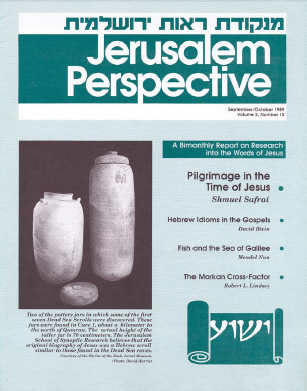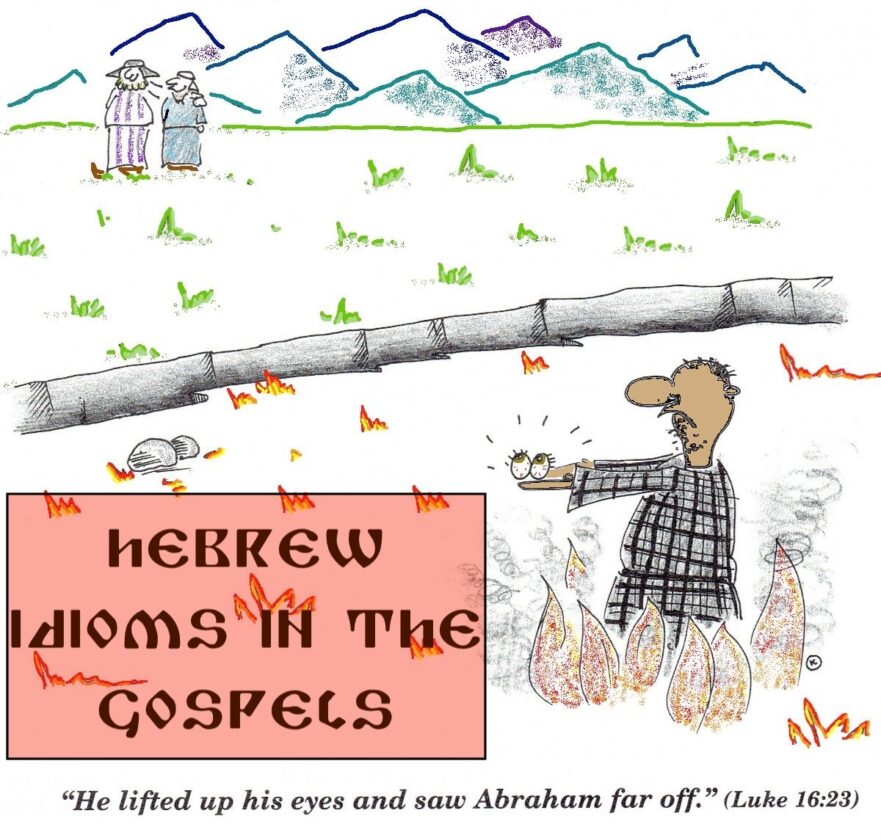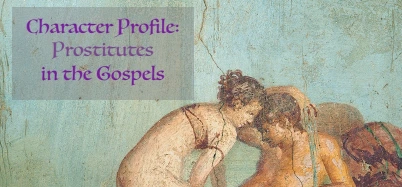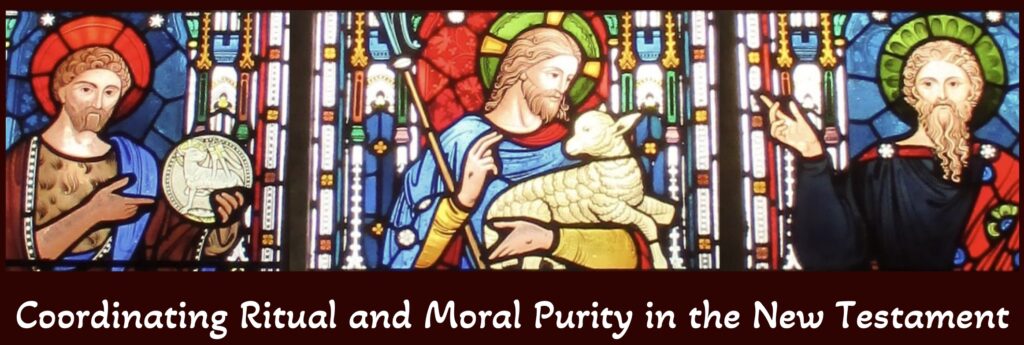Revised: 4 June 2015
There are many expressions in the Greek texts of Matthew, Mark and Luke that seem to derive from Hebrew idioms. These are phrases that mean something different from the literal meaning of their words. Every language has its own idioms, many of which seem strange when translated literally out of their native setting.
Think of such common English idioms as “hit the ceiling,” “kill time,” “eat one’s heart out,” “lose one’s head,” “be in hot water,” “throw in the towel,” and “kick the bucket.” A non-English speaker who heard these idioms translated literally into his or her language would probably find them amusing. However, if he or she did not suspect that they were literal translations of English idioms and took them at face value, the information the person received would be very misleading.
The Hebrew language has thousands of idioms. Modern Hebrew has fascinating idioms that developed from expressions found in Biblical Hebrew and Rabbinic Hebrew, for example: בְּאַרְבַּע עֵינַיִם (be‘arba enayim), literally, “with four eyes,” means face to face without the presence of a third person, as in, “The two men met with four eyes.” The idiom לֹא דֻּבִּים וְלֹא יַעַר (lo dubim velo ya’ar) is, literally, “[There are] neither bears nor forest,” but means that something is completely false. And the idiom טָמַן אֶת יָדוֹ בַּצַּלַּחַת (taman et yado batsalahat), literally, “buried his hand in the dish,” means that someone idled away his time. A translator faced with putting these idioms into another language such as English must be careful to find an equivalent idiom for each Hebrew expression. If the translator merely translates the idioms word for word, he or she will not end up with English, but Hebrew in English dress.
Paid Content
Premium Members and Friends of JP must be logged in to access this content: Login
If you do not have a paid subscription, please consider registering as a Premium Member starting at $10/month (paid monthly) or only $5/month (paid annually): Register
One Time Purchase Rather Than Membership
Rather than purchasing a membership subscription, you may purchase access to this single page for $1.99 USD. To purchase access we strongly encourage users to first register for a free account with JP (Register), which will make the process of accessing your purchase much simpler. Once you have registered you may login and purchase access to this page at this link:
For more on Gospel idioms, see:

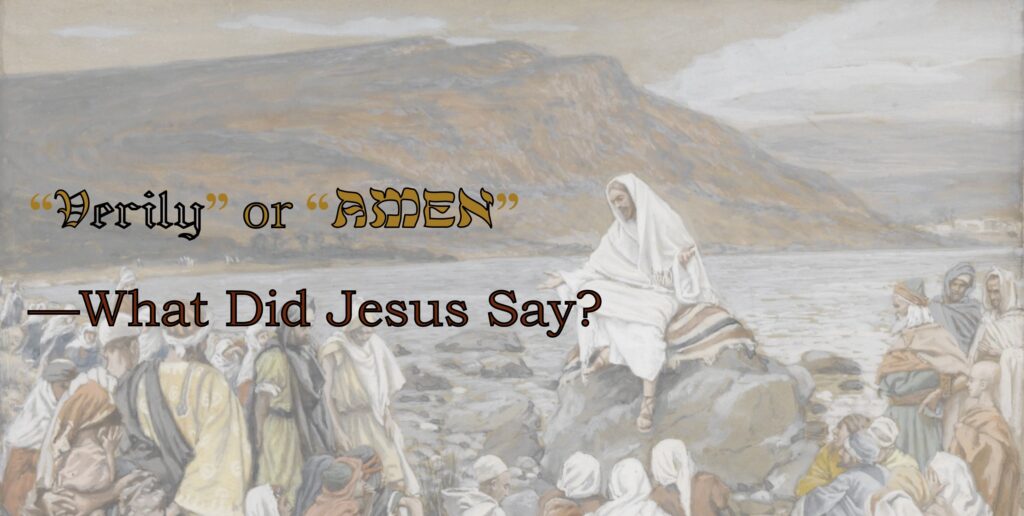




And check out these recent JP articles:
- Character Profile: Prostitutes in the GospelsWas first-century Jerusalem really crawling with prostitutes, as Jesus’ saying about tax collectors and harlots entering the Kingdom of God seems to suggest?
- Purity Halakha in the Story of the Hemorrhaging WomanDoes concern for ritual purity explain why the hemorrhaging woman touched Jesus’ tzitzit?
- Coordinating Ritual and Moral Purity in the New TestamentTaking another look at how John the Baptist, Jesus, and the Apostle Paul related to issues of ritual and moral purity.
- Two Kinds of Love in the Story of the Paralyzed ManTwo kinds of love operate in the story of the paralyzed man. One kind of love is inclusive and redemptive, the other is exclusive and destructive. Which kind of love will prove victorious?
- Character Profile: BeelzebulGet acquainted with this mysterious and sinister figure.
- What’s Wrong with Contagious Purity? Debunking the Myth that Jesus Never Became Ritually ImpureThe view that Jesus could not be affected by impurity and that Jesus was able to spread his purity to others is based on faulty assumptions and invalid inferences.
